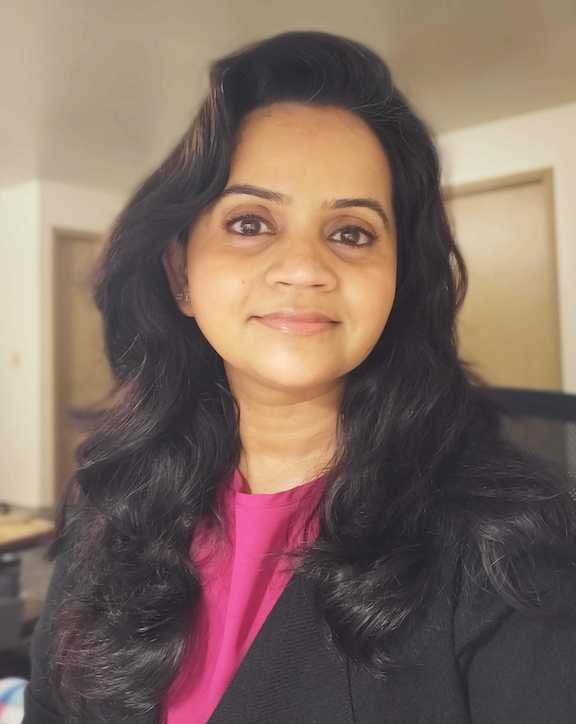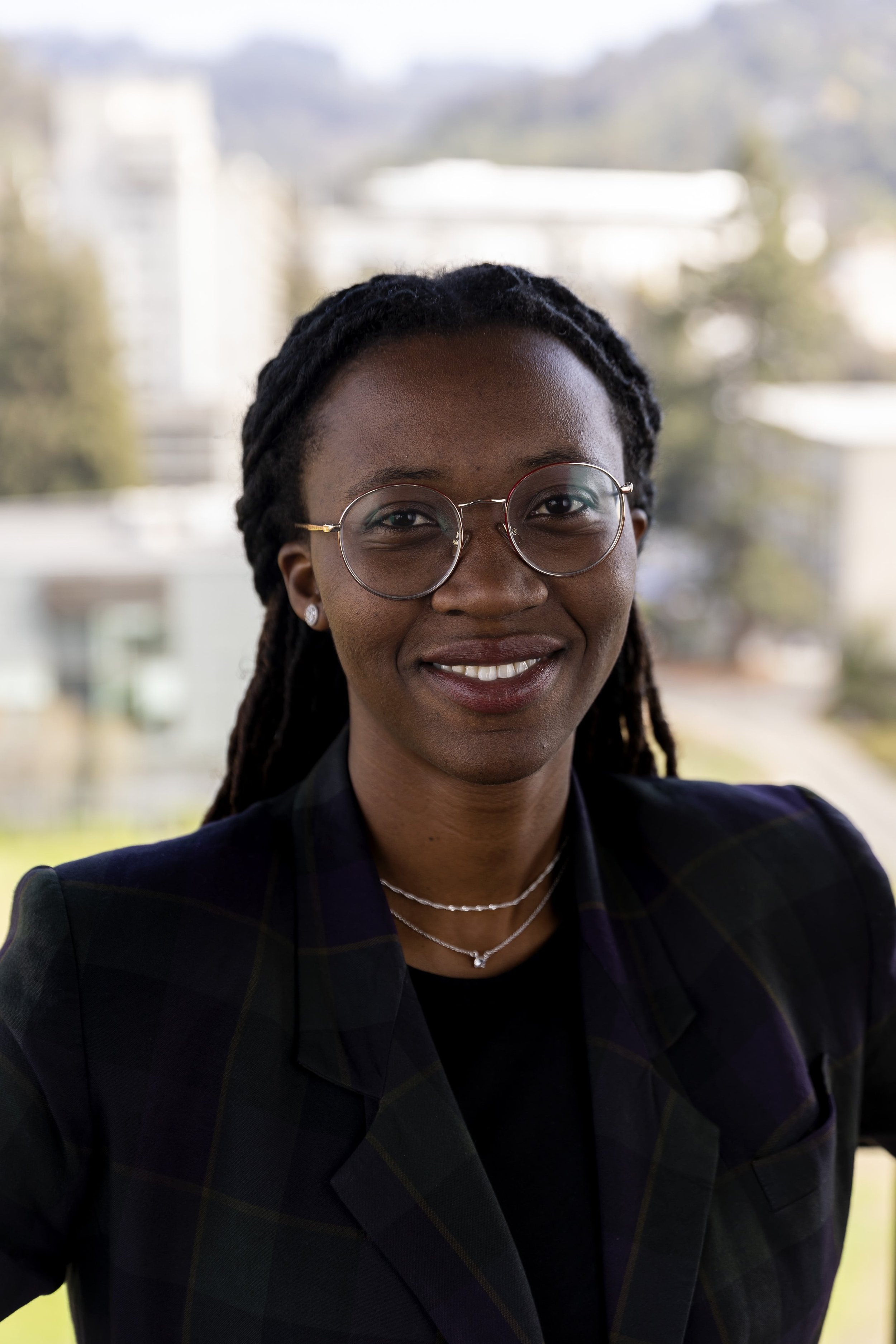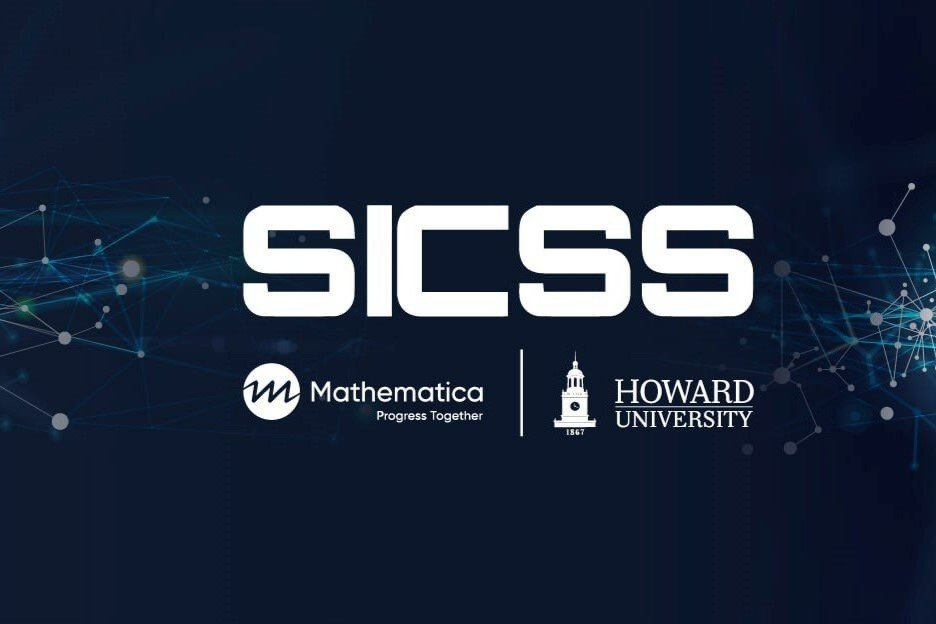Rethinking Inclusivity in Computational Social Science
Howard University
This blog is part of a 3-year ongoing series “The Future of Computational Social Science is Black” about SICSS-Howard/ Mathematica, the first Summer Institute in Computational Social Science held at a Historically Black College or University. To learn more about SICSS-H/M’s inaugural start, read the 2021 blog “Welcome SICSS-Howard/ Mathematica 2021” or our first blog “Uncovering new keys to countering anti-Black racism and inequity using computational social science.” If you are interested in applying to participate in SICSS-H/M 2024, check out our website.
Since 2017, scholars from across the globe have gathered at the Summer Institute in Computational Social Science (SICSS) to gain advanced training in research methods bridging social science and data science. The rise of computational social science is closely tied to the explosion of electronic data from sources such as social media and administrative data. This data explosion, while presenting challenges, also offers unparalleled opportunities for in-depth studies of human behavior. However, understanding of human and social behaviors can be skewed if the research lacks diverse representation.
As Ching-Shiuan Jiang, disability inclusion consultant, rightly puts it, "It is when advanced technologies are developed with inclusivity in mind that they can truly drive progress for all." Inclusion in data-driven solutions shouldn’t be limited to participation alone - diversity in the design and discovery phases is also crucial. In our technologically driven era, it’s important to provide all members of society, including marginalized and underserved groups such as people with disabilities, with comprehensive and accessible training. While the SICSS program at the Howard/Mathematica site has taken commendable steps to extend the SICSS model and offer advanced training to participants of color, there is still room for further dialogue and efforts around inclusion for SICSS sites writ large. Leaders in the field must not only highlight the importance of accessibility, but also develop strategies to make computational social science education both inclusive and accessible to those with disabilities who aspire to become computational social scientists. This commitment ensures that people with disabilities aren’t merely consumers of technology or research but also its contributors and creators.
In the United States, our progress towards accessibility and inclusion in education remains limited, even three decades after the implementation of the American with Disabilities Act (ADA). This holds true both nationally and internationally, despite global human rights initiatives such as the Convention on the Rights of Persons with Disabilities (CRPD), created by the United Nations Office of the High Commissioner for Human Rights (OHCHR). Within the field of computational social science, the inclusion of individuals with disabilities isn’t merely a human rights mandate. Their active participation is pivotal in creating models that are transparent, unbiased, and most importantly, ethical. However, achieving this requires institutions such as SICSS to take the initiative to provide high-quality training to those with disabilities who aim to pursue a career in computational social science.
With this goal in mind, by employing the Universal Design for Learning (UDL) framework, we highlight the efforts of SICSS-H/M where we saw glimpses of a more inclusive future.
Multiple means of representation (The ‘What’ of Learning):
Recording of Sessions: The ability to review the day’s content multiple times allows individuals with low vision, hearing difficulties, learning disabilities, or issues with concentration and memory to revisit the material at their own pace, ensuring they have access to all information.
Multiple means of actions and expressions (The “How” of Learning):
Virtual Format: Hosting the workshops virtually reduces mobility barriers and the extra costs of transportation, particularly for those using wheelchairs or crutches. This facilitates easier participation.
Camera Flexibility: Offering participants the option to turn off their cameras gives them the freedom to take breaks or manage personal needs without the pressure of physically leaving a classroom setting.
Multiple means of engagement (The “Why” of Learning):
Stigma Reduction: The virtual format provides an environment where individuals can choose when and to whom they disclose their impairments, potentially reducing the societal stigma they face and letting them focus on learning.
Morning Meditations: Introducing calming and grounding activities like meditation at the start can support individuals with psychosocial disabilities like social anxiety, making them more comfortable and engaged throughout the day.
By incorporating the UDL framework into their teaching and learning, other SICSS sites can improve accessibility and inclusivity for participants with disabilities. Furthermore, leaders and administrators should look to the highly informative webinar, “Your Path to Accessibility,” as an essential reference. While the road to achieving universal accessibility in computational social science may appear daunting, here are some foundational measures to contemplate:
Recommendations to Make SICSS More Welcoming and Inclusive to Participants with Disabilities
a) Making The Initial Experience More Welcoming and Inclusive
Include a section in the application where aspiring participants can indicate if they have an impairment. This will help the organizers to better understand the demographic makeup and needs of potential participants.
Prior to the start of the institute, give participants opportunities to provide information about their specific accommodation needs via questionnaire. Allow for anonymous replies to ensure participants feel comfortable sharing.
Adopt color-blind friendly font colors and combinations in all official communications, including recruitment emails and official websites.
b) Enhancing Content and Structure for Engaging Participants with Disabilities
Expert Consultation
Involve individuals with disabilities who are professionals in computational social science during the planning and implementation stages.
Seek guidance from researchers specializing in disability, accessibility, and universal learning.
Content Presentation
Use color-blind friendly colors consistently across all platforms, including emails, slides, and collaboration tools like Slack. For instance, a combination of blue and white should be prioritized, and colors like red should be minimized or avoided.
Implement real-time transcription during live sessions using platforms like Zoom, and ensure the final transcribed document is accessible to all participants.
c) Additional Insights
Research Sponsorship: Invest in a comprehensive study that focuses on making computational social science more accessible. This research could serve as a guiding blueprint for other educational institutions and programs.
Technology & Tools: Ensure that any platforms or software used during the event are compatible with accessibility tools like screen readers.
Offer training and tutorial sessions on using these tools for participants who may not be familiar with them.
Physical accessibility: If the summer institute is held in an in-person or hybrid format, ensure the venues are equipped with ramps, elevators, and other facilities catering to persons with mobility challenges.
Consider auditory and visual enhancements for presentations, like using microphones consistently and having presentations captioned or interpreted in real-time.
Creating an inclusive community: Host workshops or sessions on empathy and understanding to educate participants, organizers, and instructors about the challenges faced by those with disabilities.
Establish mentorship programs where experienced professionals in the field, both with and without disabilities, can guide newer entrants.
Feedback mechanism: Improve the existing feedback system to include a mechanism through which participants can provide their specific insights on the inclusive measures, what worked, what didn’t, and what can be improved for future iterations.
How can we truly ensure computational social science education is accessible for all, especially for individuals with disabilities aspiring to become computational social scientists?
For more information about SICSS-Howard/Mathematica, check out our website, follow us on Twitter, like us on Facebook, and join our email list. The application for SICSS-Howard/Mathematica 2024 is open! Apply now!
About the authors
Asha Yadav is a Postdoctoral Associate at the Anita Zucker Center for Excellence in Early Childhood Studies, located in the College of Education at the University of Florida. Her area of specialization encompasses the realms of special education and clinical sciences with specific focus on implementation of evidenced-based practices and policies aimed at improving systems and fostering optimum development of young children with disabilities or those who are at risk of such, along with their families. Asha has a wealth of professional and educational experience garnered from exposure to a multitude of educational and social care systems from both developing and developed contexts. Her past experiences include strategic leadership roles in non-governmental organizations, special needs teaching, and position as a rehabilitation therapist in the UK, Europe, India and the USA.
Jia Rung Wu is an Assistant Professor of Rehabilitation Counseling Program within the Department of Counselor Education at Northeastern Illinois University. As a former Mary Switzer Merit Research Fellow, she has garnered significant recognition in the field. With over ten years of clinical experience as both an occupational therapist and rehabilitation counselor, she brings a wealth of practical knowledge. Her research endeavors have been primarily concentrated on enhancing health promotion, subjective well-being, community engagement, vocational rehabilitation, postsecondary transition, and career development for individuals with disabilities and chronic health conditions and those within underrepresented communities.
Mango J. Angar is a Political Science Ph.D. student at the University of California, Berkeley. Her research focuses on Political Violence and Disability Politics. In particular, she examines how state institutions, society, and disabled persons organizations conceptualize and define disability.
Naniette H. Coleman is a PhD candidate in the Sociology Department at the University of California, Berkeley and the founder of SICSS-Howard/Mathematica. Her work sits at the intersection of the sociology of culture and organizations and focuses on cybersecurity, surveillance, and privacy in the US context. Specifically, Naniette’s research examines how organizations assess risk, make decisions, and respond to data breaches and organizational compliance with state, federal, and international privacy laws. Naniette holds a Master of Public Administration with a specialization in Democracy, Politics, and Institutions from the Harvard Kennedy School of Government, and both an M.A. in Economics and a B.A. in Communication from the University at Buffalo, SUNY. A non-traditional student, Naniette’s prior professional experience includes local, state, and federal service, as well as work for two international organizations, and two universities. Naniette is also passionate about the arts.








